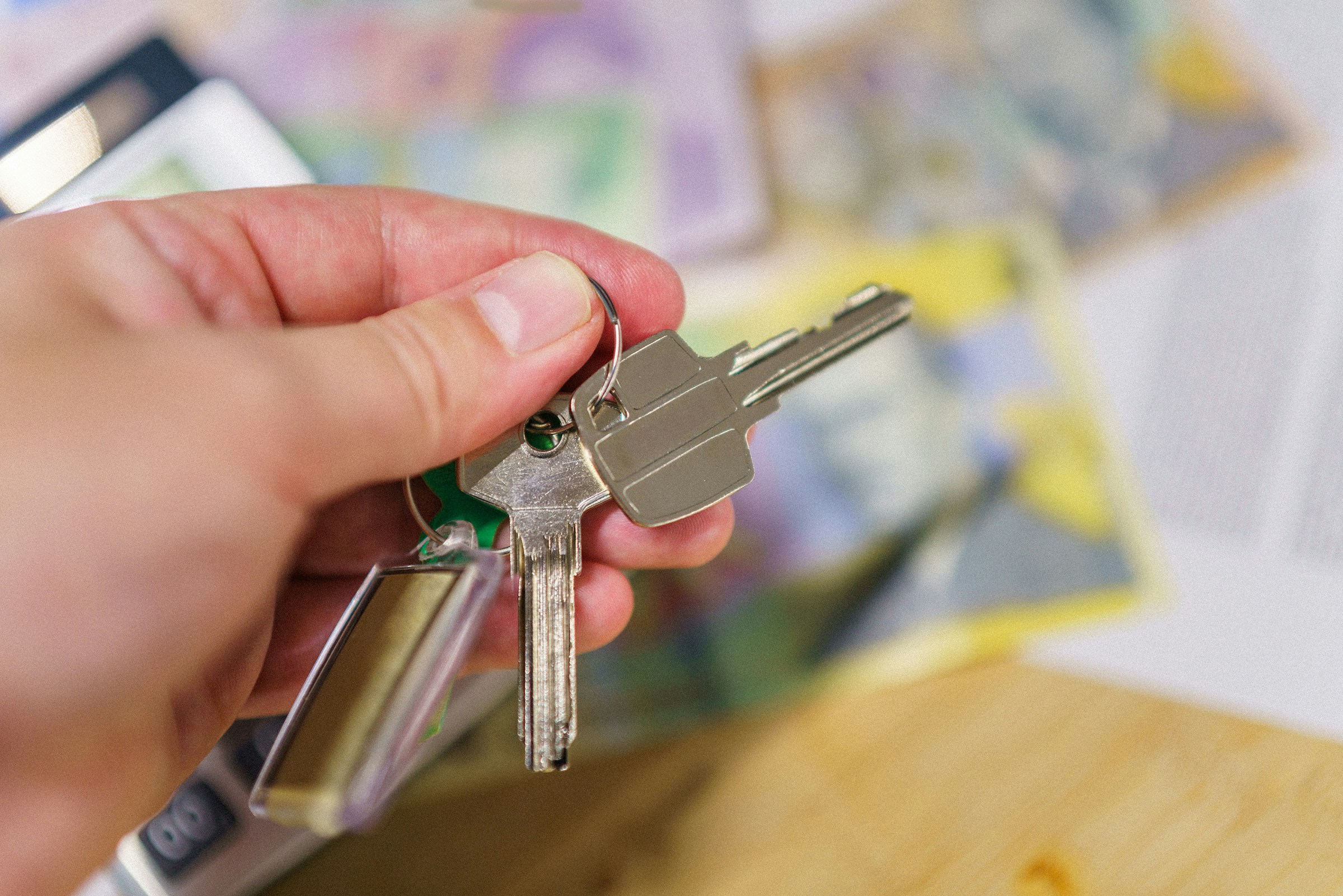As the UK ramps up its energy efficiency standards, property owners face new challenges and opportunities. Understanding these regulations is essential to avoid penalties and enhance property value. This guide offers practical strategies for compliance, transforming potential stress into a proactive approach that can lead to significant savings. With straightforward steps tailored for UK homeowners, you'll find a pathway to meet government standards effortlessly while benefiting both your wallet and the environment. Discover how to boost energy efficiency today!
Understanding New UK Government Energy Efficiency Standards
Navigating the latest energy efficiency standards set by the UK government is crucial for property owners. These regulations aim to reduce carbon emissions and promote sustainable energy use. By mandating improvements in building performance, the government seeks to address environmental concerns and lower energy consumption across the nation.
A lire également : What are the specific financial steps UK expatriates should take before buying property upon returning?
Property owners must comply with these standards to avoid penalties and reap the benefits of adherence. Non-compliance can result in fines, legal action, and potentially higher operational costs due to inefficient energy use. On the other hand, meeting these regulations can lead to reduced utility bills, increased property value, and a positive environmental impact.
The importance of compliance cannot be overstated. It not only helps in mitigating climate change but also enhances the comfort and quality of living spaces. Property owners should stay informed about these regulations and take proactive steps to ensure their buildings meet the required standards. This might involve upgrading insulation, installing energy-efficient windows, or incorporating renewable energy sources.
En parallèle : How can UK first-time homebuyers benefit from the recent changes in stamp duty for properties under £300,000?
In summary, understanding and adhering to the UK's energy efficiency standards is a wise investment for property owners. It ensures compliance with government regulations while offering financial and environmental benefits.
Key Strategies for Improving Energy Efficiency
Enhancing energy efficiency in properties is a multi-faceted approach that can significantly reduce energy consumption and costs. Implementing strategic property improvements is essential for aligning with the UK's energy efficiency standards.
Insulation Upgrades and Their Impact
One of the most effective energy efficiency strategies is upgrading insulation. Proper insulation minimizes heat loss during winter and keeps interiors cool in summer, reducing the need for excessive heating and cooling. This improvement can lead to substantial savings on utility bills and a more comfortable living environment.
Efficient Heating and Cooling Systems
Investing in modern, efficient heating and cooling systems is another crucial step. These systems are designed to use less energy while maintaining optimal indoor temperatures. For instance, installing a programmable thermostat allows property owners to manage energy use more precisely, ensuring systems are only active when needed.
Use of Renewable Energy Sources
Incorporating renewable energy sources like solar panels or wind turbines can further enhance a property's energy profile. These sources not only reduce reliance on traditional energy but also offer long-term savings and potential government incentives. Transitioning to renewable energy is a proactive way to meet energy efficiency standards and contribute to environmental sustainability.
Conducting an Energy Audit
An energy audit is a comprehensive assessment of a property’s energy use, identifying areas for improvement to enhance efficiency. Conducting an energy audit is pivotal for understanding a building's energy consumption patterns and discovering potential savings.
Importance of Energy Audits
Energy audits are crucial as they provide a detailed analysis of energy usage, pinpointing inefficiencies. By understanding these inefficiencies, property owners can make informed decisions to improve energy performance and reduce costs. Additionally, audits help in aligning with the UK’s energy efficiency standards, ensuring compliance and avoiding penalties.
How to Conduct an Energy Audit
Conducting an energy audit involves several steps. Initially, assess current energy bills and usage patterns. Identify areas with high energy consumption, such as heating and cooling systems. Inspect insulation and windows for potential leaks. Use tools like infrared thermometers to detect heat loss. Document findings to plan improvements effectively.
Utilizing Professional Services
For a thorough energy assessment, hiring certified professionals is beneficial. They provide expertise and advanced tools for accurate evaluations. Professional services offer tailored solutions, ensuring optimal energy efficiency. To find local energy audit services, consult online directories or contact energy suppliers who often provide audit services.
Case Studies of Successful Compliance
Exploring success stories in energy efficiency can provide valuable insights for property owners seeking to comply with UK standards. These energy efficiency case studies highlight practical applications and real-world results.
Examples of Improved Energy Efficiency
One notable example is a residential complex in Manchester that underwent significant upgrades. By enhancing insulation and installing solar panels, they achieved a 30% reduction in energy consumption. Similarly, a commercial building in London replaced outdated HVAC systems with energy-efficient models, resulting in a 25% decrease in utility costs.
Analysis of Cost Savings Achieved
The Manchester complex reported annual savings of £15,000 on energy bills. Meanwhile, the London commercial building saved approximately £20,000 annually. These figures underscore the financial benefits of investing in energy efficiency improvements.
Lessons Learned and Best Practices
From these case studies, several best practices emerge. Prioritizing high-impact areas like insulation and HVAC systems can yield substantial savings. Additionally, leveraging government incentives for renewable energy installations can offset initial costs. Engaging with professional energy auditors ensures targeted and effective upgrades. Property owners can draw inspiration from these success stories to enhance their own energy efficiency, aligning with national standards and reaping both financial and environmental rewards.
Financial Incentives and Support
Exploring financial incentives and support options can significantly aid property owners in achieving energy efficiency upgrades. The UK government offers various grants and funding opportunities to encourage sustainable practices.
Overview of Government Grants and Funding Options
Property owners can access several grants for energy efficiency improvements. These grants often cover a portion of the costs associated with upgrades such as insulation, efficient heating systems, and renewable energy installations. One notable program is the Green Homes Grant, which provides vouchers to help cover the cost of energy-efficient home improvements.
Tax Benefits for Energy-Efficient Upgrades
In addition to grants, there are tax benefits available for those investing in energy-efficient upgrades. These benefits can help offset the initial investment costs. For example, the Enhanced Capital Allowance (ECA) scheme allows businesses to claim 100% first-year capital allowances on qualifying energy-efficient equipment, reducing taxable profits.
How to Apply for Financial Support
Applying for financial support involves researching available programs and understanding eligibility criteria. Start by visiting government websites or consulting with local authorities to identify suitable grants. Ensure all required documentation is prepared, such as energy audit reports and detailed project plans. This preparation increases the likelihood of securing financial assistance for energy efficiency projects.
Common Challenges and Solutions
Navigating the path to enhanced energy efficiency often presents several challenges for property owners. Understanding these barriers and implementing effective problem-solving strategies is crucial.
Typical Barriers Property Owners Face
Property owners frequently encounter challenges such as high upfront costs, lack of technical knowledge, and limited access to efficient technologies. These obstacles can deter or delay the implementation of necessary upgrades, impacting overall energy efficiency.
Innovative Solutions to Common Problems
To tackle these challenges, innovative solutions are essential. Leveraging government incentives and grants can alleviate financial burdens, making upgrades more affordable. Additionally, engaging with energy efficiency consultants can bridge the knowledge gap, providing tailored advice and solutions. Investing in modular and scalable technologies allows for gradual improvements without overwhelming costs.
Resources for Overcoming Obstacles
Several resources are available to assist property owners in overcoming energy efficiency challenges. Government websites and local authorities offer information on financial incentives and technical guidance. Online platforms provide access to energy efficiency tools and technologies. Networking with industry professionals through forums and workshops can also yield valuable insights and support. By utilizing these resources, property owners can effectively address barriers and enhance their property's energy performance.
The Role of Technology in Energy Efficiency
Integrating energy efficiency technology into properties is a pivotal step toward sustainable living. By embracing smart home solutions, property owners can significantly enhance their energy management and reduce consumption.
Smart Home Devices
Smart home devices play a crucial role in optimizing energy use. Smart thermostats, for instance, allow homeowners to control heating and cooling remotely, ensuring energy is used only when needed. Energy monitors provide real-time feedback on consumption patterns, helping identify areas for improvement. These devices not only enhance comfort but also contribute to substantial cost savings.
Energy Management Systems
Energy management systems (EMS) are comprehensive solutions that integrate various technologies to optimize energy use. They monitor, control, and automate energy-consuming devices, ensuring efficiency across the board. By analyzing data, EMS can suggest adjustments to reduce waste and improve performance, aligning with energy efficiency goals.
Innovations in Renewable Energy
The future of energy efficiency technology lies in innovations in renewable energy. Advancements in solar panel efficiency and energy storage solutions are making renewable energy more accessible and practical. These technologies offer property owners the opportunity to reduce reliance on fossil fuels, lower utility bills, and contribute to a cleaner environment. As technology evolves, the potential for smarter, more efficient energy solutions continues to grow.
Long-term Maintenance and Energy Efficiency
Regular maintenance for energy efficiency is essential in sustaining the benefits of energy-efficient upgrades. Consistent upkeep ensures that systems operate at peak performance, prolonging their lifespan and maximizing cost savings.
Importance of Regular Maintenance for Energy Systems
Energy systems, such as heating, cooling, and insulation, require regular checks to maintain efficiency. Neglecting maintenance can lead to system inefficiencies, increased energy consumption, and higher utility bills. Routine inspections and servicing help detect issues early, preventing costly repairs and ensuring compliance with energy efficiency standards.
Tips for Ongoing Energy Efficiency Improvements
To sustain energy efficiency, property owners should:
- Schedule regular inspections for HVAC systems to ensure they are functioning optimally.
- Clean or replace filters in air conditioning and heating units to maintain airflow and efficiency.
- Check insulation and seal any gaps or leaks to prevent energy loss.
- Upgrade to energy-efficient appliances and lighting as technology advances.
Resources for Maintaining Energy-Efficient Upgrades
Several resources are available for maintaining energy-efficient upgrades. Property owners can consult energy efficiency consultants for tailored advice on maintenance schedules and techniques. Online platforms offer guides and tools for DIY maintenance. Additionally, government programs may provide support for energy efficiency audits and upgrades, ensuring ongoing compliance and performance.
Resources and Further Reading
Exploring energy efficiency resources is crucial for property owners aiming to meet UK government guidelines. These resources offer valuable insights and support for implementing energy-efficient practices.
Government Websites and Resources: For comprehensive information, property owners should visit government websites like the UK Department for Business, Energy & Industrial Strategy (BEIS). These platforms provide detailed guidelines on energy efficiency standards and available financial incentives. Additionally, the Energy Saving Trust offers practical advice and tools for improving energy performance.
Recommended Reading for Property Owners: To deepen understanding, property owners can explore publications such as the "Energy Efficiency in Buildings" guide by the Chartered Institution of Building Services Engineers (CIBSE). This resource covers best practices and innovative solutions for enhancing energy efficiency.
Relevant Organizations for Support: Engaging with organizations like the Carbon Trust can provide further assistance. They offer expert advice and services tailored to improving energy efficiency in businesses and homes. The National Energy Foundation also provides educational materials and support for sustainable energy use.
By utilizing these energy efficiency resources, property owners can better align with government guidelines, ensuring compliance and maximizing the benefits of energy-efficient upgrades.
Frequently Asked Questions
Navigating the realm of energy efficiency can raise numerous queries. Here, we address common concerns to aid property owners in achieving compliance with UK standards.
What are the penalties for non-compliance with energy efficiency standards?
Non-compliance can result in fines, legal action, and increased operational costs due to inefficient energy use. It is crucial for property owners to understand these repercussions to avoid financial and legal consequences.
How can I ensure my property meets the required energy efficiency standards?
To ensure compliance, property owners should conduct regular energy audits and implement recommended improvements. Engaging with certified professionals can provide tailored solutions, ensuring optimal energy performance.
Are there misconceptions about energy efficiency that I should be aware of?
A common misconception is that energy efficiency upgrades are prohibitively expensive. However, leveraging government incentives and grants can make these improvements more affordable. Additionally, some believe that energy efficiency solely involves installing new technology, but it also encompasses maintaining existing systems efficiently.
Where can I seek additional help for energy efficiency upgrades?
Property owners can consult government resources, such as the UK Department for Business, Energy & Industrial Strategy, for detailed guidelines and financial support. Engaging with organizations like the Carbon Trust can also provide expert advice and services tailored to enhancing energy efficiency.






